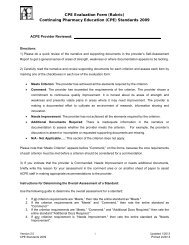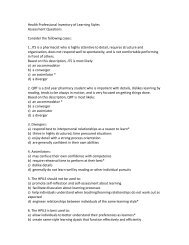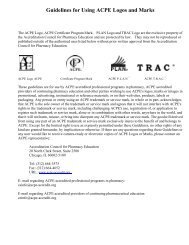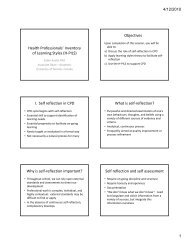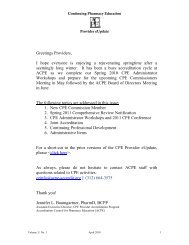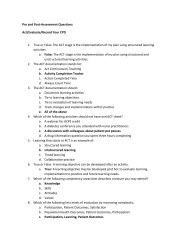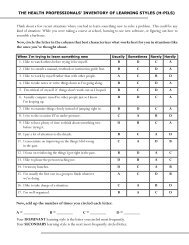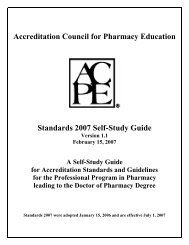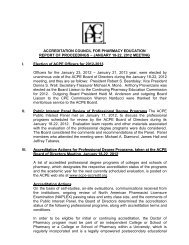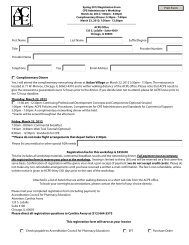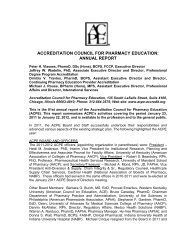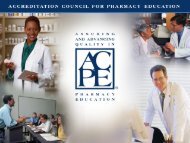Entry-level Competencies Needed for Managed Care Pharmacy ...
Entry-level Competencies Needed for Managed Care Pharmacy ...
Entry-level Competencies Needed for Managed Care Pharmacy ...
Create successful ePaper yourself
Turn your PDF publications into a flip-book with our unique Google optimized e-Paper software.
7. Discuss the concept of utilization management and provide functional definitions of key<br />
elements associated with drug-related utilization management (such as prior<br />
authorization, step therapy, and quantity limits).<br />
8. Discuss general concepts associated with the benefit structure of a health plan, including<br />
co-pay vs. co-insurance, premium vs. deductible and maximum out-of-pocket costs.<br />
9. Identify the major factors influencing drug costs <strong>for</strong> a managed care organization (e.g.,<br />
pharmacy costs, drug pricing methodologies, contracts/rebates, discounts).<br />
10. Identify and explain the steps involved in the drug-approval process in the U.S.<br />
11. Explain the purpose and function of pharmacy benefit management programs.<br />
12. Discuss the principles of patient-centered care management programs.<br />
13. Discuss the principles of quality management<br />
14. Explain the role of quality organizations in ensuring quality in the managed care setting.<br />
15. Identify and explain the major roles of the pharmacist in population-based provision of<br />
care (as distinguished from direct patient care).<br />
16. Explain the term specialty pharmaceuticals, give examples of such products, and<br />
describe generally how they are procured, stored and dispensed to patients.<br />
17. Identify several major factors that contribute to drug-related fraud and abuse.<br />
18. Identify several major factors that contribute to drug waste.<br />
19. Discuss the requirements <strong>for</strong> patient confidentiality as provided <strong>for</strong> under the 1996 Health<br />
Insurance Portability and Accountability Act (HIPAA) and professional practice<br />
guidelines.<br />
Psychomotor domain<br />
20. Demonstrate strong clinical skills.<br />
21. Communicate effectively, both orally in writing, in a manner appropriate <strong>for</strong> the intended<br />
audience (e.g., patient, health care provider, plan sponsor).<br />
22. Apply critical-thinking and problem-solving skills.<br />
23. Demonstrate strong computer skills and apply those skills in analyses, presentations and<br />
communications.<br />
24. Function as a productive team member.<br />
25. Advocate on behalf of the appropriate use of medications and needs of patients.<br />
26. Develop a variety of drug-related reports, monographs, reviews, and policies, using drug<br />
literature evaluation skills.<br />
27. Develop educational materials and correspondences <strong>for</strong> patients and caregivers (at the<br />
appropriate <strong>level</strong> of understanding).<br />
28. Conduct literature searches on existing marketed drug products and those in the pipeline.<br />
29. Evaluate appropriateness of clinical trials of medications, including validation of trial<br />
design and assessment of data credibility.<br />
30. Create and maintain effective relationships with others, based on an understanding of the<br />
needs of key stakeholders.<br />
31. Demonstrate effective medication therapy management skills.<br />
32. Apply major clinical practice guidelines in making therapeutic recommendations <strong>for</strong><br />
individual patients.<br />
33. Demonstrate expertise in <strong>for</strong>mulating, interpreting, and evaluating clinical medication<br />
criteria.<br />
4



